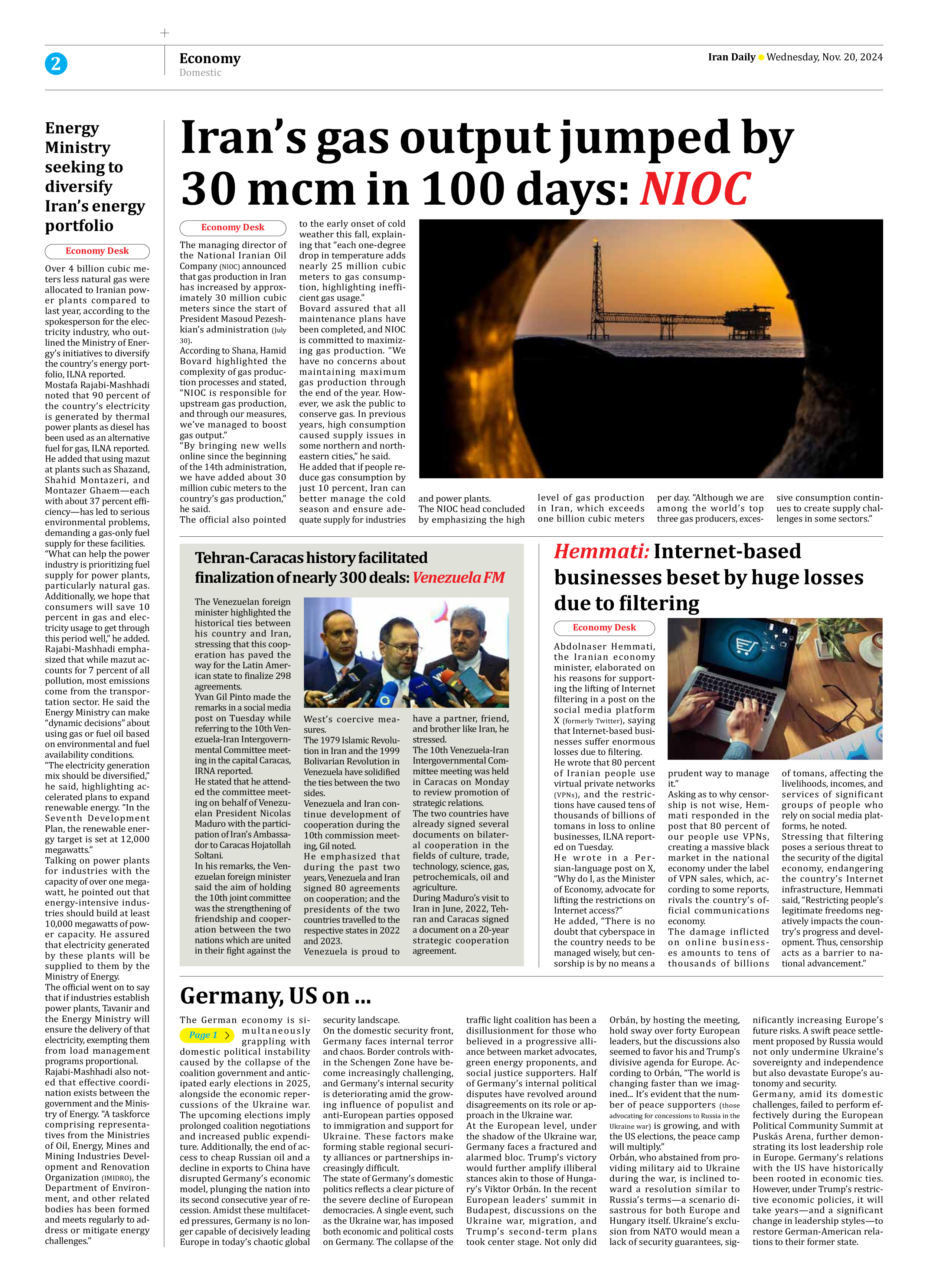
Energy Ministry seeking to diversify Iran’s energy portfolio
Over 4 billion cubic meters less natural gas were allocated to Iranian power plants compared to last year, according to the spokesperson for the electricity industry, who outlined the Ministry of Energy’s initiatives to diversify the country’s energy portfolio, ILNA reported.
Mostafa Rajabi-Mashhadi noted that 90 percent of the country’s electricity is generated by thermal power plants as diesel has been used as an alternative fuel for gas, ILNA reported.
He added that using mazut at plants such as Shazand, Shahid Montazeri, and Montazer Ghaem—each with about 37 percent efficiency—has led to serious environmental problems, demanding a gas-only fuel supply for these facilities.
“What can help the power industry is prioritizing fuel supply for power plants, particularly natural gas. Additionally, we hope that consumers will save 10 percent in gas and electricity usage to get through this period well,” he added.
Rajabi-Mashhadi emphasized that while mazut accounts for 7 percent of all pollution, most emissions come from the transportation sector. He said the Energy Ministry can make “dynamic decisions” about using gas or fuel oil based on environmental and fuel availability conditions.
“The electricity generation mix should be diversified,” he said, highlighting accelerated plans to expand renewable energy. “In the Seventh Development Plan, the renewable energy target is set at 12,000 megawatts.”
Talking on power plants for industries with the capacity of over one megawatt, he pointed out that energy-intensive industries should build at least 10,000 megawatts of power capacity. He assured that electricity generated by these plants will be supplied to them by the Ministry of Energy.
The official went on to say that if industries establish power plants, Tavanir and the Energy Ministry will ensure the delivery of that electricity, exempting them from load management programs proportional.
Rajabi-Mashhadi also noted that effective coordination exists between the government and the Ministry of Energy. “A taskforce comprising representatives from the Ministries of Oil, Energy, Mines and Mining Industries Development and Renovation Organization (IMIDRO), the Department of Environment, and other related bodies has been formed and meets regularly to address or mitigate energy challenges.”







